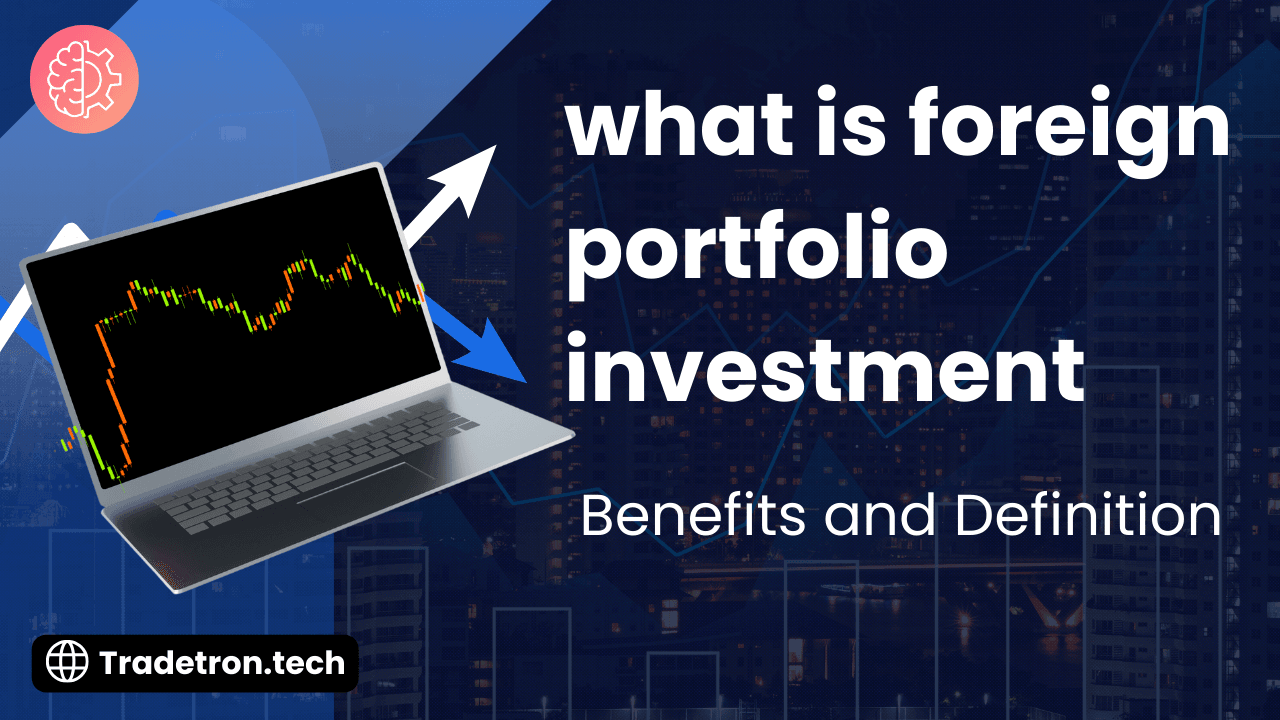
Introduction
In today’s globally connected economy, investors are always looking for opportunities beyond their home country. One popular way to invest internationally is through Foreign Portfolio Investment (FPI). This type of investment allows individuals and institutions to access foreign markets without taking direct control over businesses. In this blog, we’ll explore what FPI is, its benefits, and why it matters for global investors.
What is Foreign Portfolio Investment (FPI)?
Foreign Portfolio Investment (FPI) refers to the purchase of financial assets such as stocks, bonds, or other securities in a foreign country. Unlike Foreign Direct Investment (FDI), where investors gain significant control over a company, FPI is purely an investment in financial assets without involvement in management or operations.
FPI is commonly done through stock exchanges, mutual funds, or exchange-traded funds (ETFs). Investors participating in FPI aim to diversify their portfolios and take advantage of better returns, economic stability or currency appreciation in foreign markets.
Benefits of Foreign Portfolio Investment
FPI plays a crucial role in the global financial system, benefiting both investors and the countries receiving the investments.
Here are some key advantages:
1. Portfolio Diversification
Investing in foreign markets helps investors spread their risk. If a country’s economy faces a downturn, investments in other regions can balance potential losses.
2. Higher Returns
Some foreign markets offer better interest rates, higher stock market growth, or stronger currency values compared to domestic investments.
3. Liquidity
FPI assets, such as stocks and bonds, can be quickly sold, providing investors with high liquidity compared to FDI, where capital is tied up for longer periods.
4. Exposure to Emerging Markets
Many investors seek opportunities in rapidly growing economies. FPI provides access to emerging markets that might offer higher growth potential than developed nations.
5. Economic Growth for Host Countries
Countries receiving FPI benefit from increased capital flow, which can strengthen financial markets, improve currency stability, and promote economic growth.
Risks and Challenges of Foreign Portfolio Investment
While FPI offers numerous benefits, it also comes with risks. Investors must be aware of the following challenges:
Market Volatility – Foreign stock markets can be unpredictable, leading to fluctuations in investment values.
Exchange Rate Risk – Currency depreciation can reduce investment returns.
Regulatory Risks – Different countries have varied investment regulations, taxes, and restrictions that can impact returns.
Political and Economic Instability – Political unrest or economic downturns in a foreign country can negatively affect investments.
Tradetron and Foreign Portfolio Investment
At Tradetron, we understand the importance of smart and automated investing in the global market. Our algorithmic trading platform enables investors to efficiently manage their foreign investments with ease. By using Tradetron, traders can:
Automate foreign market trades using pre-built or customized strategies.
Minimize risks by setting up real-time alerts and stop-loss mechanisms.
Backtest strategies on historical data to improve decision-making.
Diversify their portfolios across multiple markets without manual intervention.
For investors looking to capitalize on Foreign Portfolio Investments, using an algorithmic trading platform like Tradetron can significantly enhance efficiency and profitability while reducing risks.
Conclusion
Foreign Portfolio Investment (FPI) is a powerful tool for investors seeking global opportunities. While it offers diversification, high liquidity, and access to emerging markets, it also carries risks like volatility and currency fluctuations. With the right investment strategy and automated tools like Tradetron, investors can make the most of FPI while minimizing risks.
If you're interested in exploring automated investment strategies for international markets, sign up with Tradetron.tech today and take your portfolio to the next level!
FAQs
1. What is the difference between Foreign Portfolio Investment (FPI) and Foreign Direct Investment (FDI)?
FPI involves investing in financial assets such as stocks and bonds without gaining control over a company, while FDI includes direct ownership and management of businesses in a foreign country.
2. How can I invest in foreign markets?
You can invest in foreign markets through stocks, bonds, mutual funds, or ETFs. Platforms like Tradetron can help automate and optimize foreign investments.
3. Is FPI risky?
Yes, FPI carries risks like market volatility, exchange rate fluctuations, and political instability. However, using automated trading platforms can help manage these risks.
4. Why do countries encourage FPI?
Countries encourage FPI to attract foreign capital, boost financial markets, and promote economic growth.
5. How does Tradetron help with Foreign Portfolio Investment?
Tradetron provides algorithmic trading solutions that allow investors to automate trades, manage risks, and optimize investment strategies across multiple global markets.



 Made with Superblog
Made with Superblog